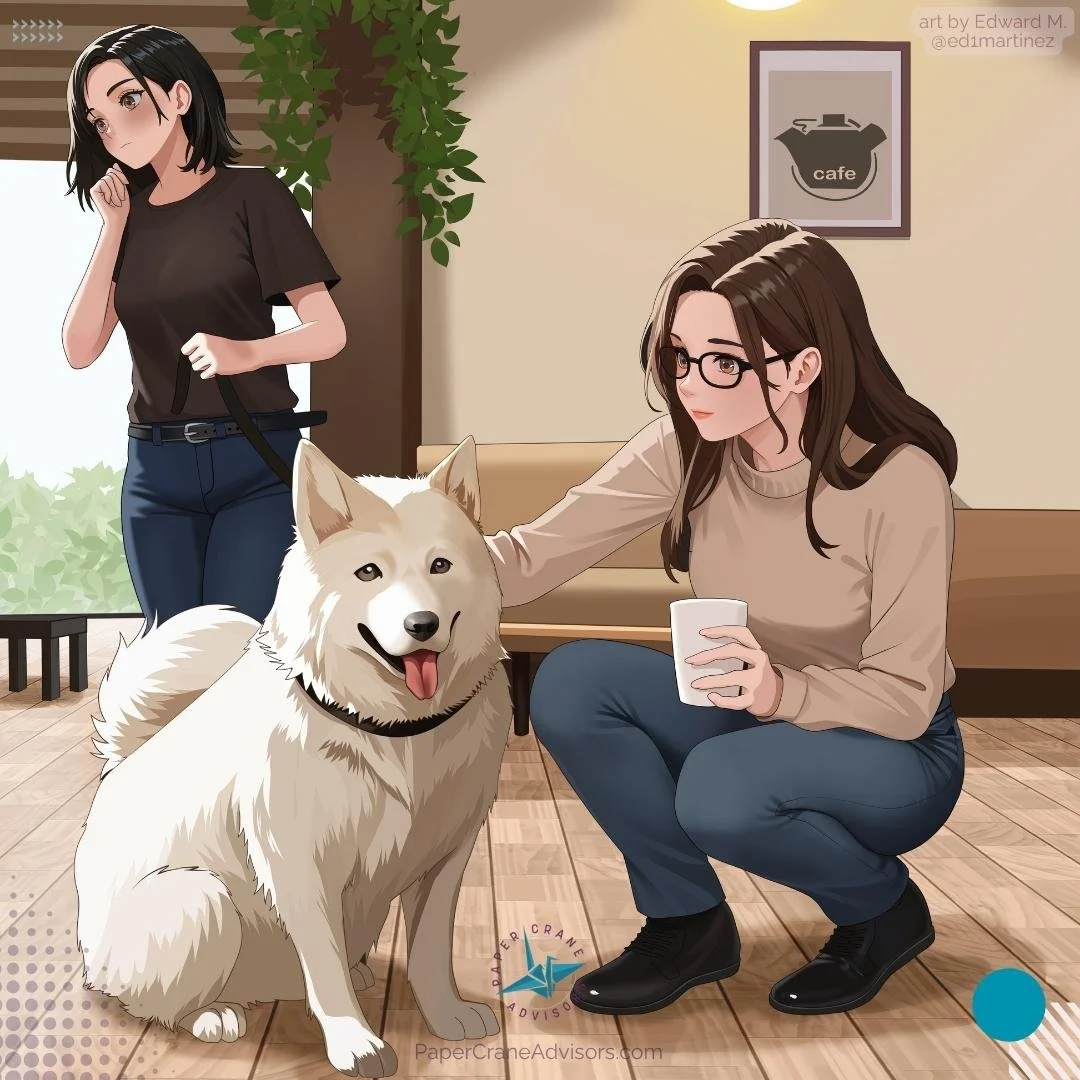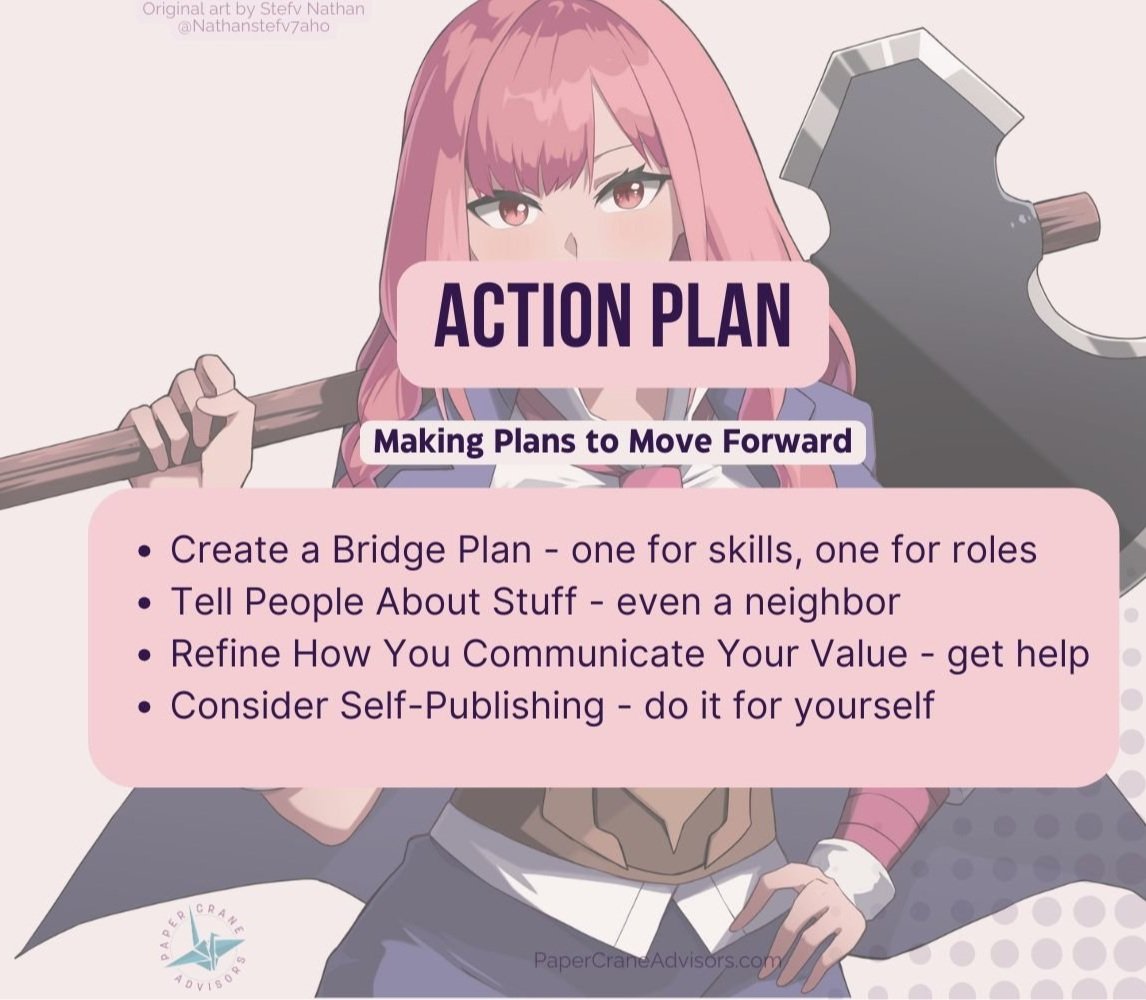Ask Lex: Why Can't I Get Job with My Degree?
Recently, I received these two questions that hit on a similar challenge:
"I just have one simple question, although it might not have a simple answer. I am fresh out of college (got my game design degree), I want to get into the games industry but I feel like I am hitting my head against a brick wall. I thought the hard part would be over but I guess not... any insight would be helpful."
and
"I graduated from college with a game design and development degree in 2017 and I haven't been able to land a job in the video game industry since. I must be doing something wrong. Do you have any advice for someone who's been trying for a LONG time to get their foot in the door?"
Here’s a wretched fact: getting the degree was just the warm-up. Now the real marathon starts.
The Hard Truths About Degrees and Jobs
First, let's get real about something: a degree doesn't automatically qualify you for a job—it can qualify you to apply for a job. I've been on both sides of the hiring table for a few decades, and here's what I've learned:
A degree is just one tool in your toolkit. It shows you have foundational knowledge and can complete things, but it doesn't show if you can actually do the things. Companies hire based on demonstrated ability and potential value, not educational “checkboxes.”
"Experience" means more than technical skills. When employers say they want "experience," they're often talking about your ability to navigate professional environments. Can you communicate effectively? Handle deadlines? Work with difficult teammates? Manage up? Present your ideas clearly?
According to recruitment folks at Built In, interpersonal skills are "arguably more important than hard skills—it's harder to teach patience than it is the backend of a CRM." This is why many hiring managers value demonstrated soft skills as much as (sometimes more than) your technical abilities; I do.
Your degree might not teach what you think it does. Game design degrees often focus on theory, principles, and some technical skills—but they rarely prepare you for the chaotic reality of shipping an actual game with real constraints, stakeholders, and market pressures. Additionally, depending on your program and what degree(s) you get, by the time you enter the market it could already be antiquated or have taught you “bad habits” that need to be reset (looking at you MBAs).
And if you're thinking, "but I got this degree specifically to work in my field"—the data might surprise you. According to studies by the Federal Reserve Bank of New York and The Small Business Blog, only about 27% of college graduates work in a field directly related to their major; I sure as cupcakes don’t (I thought I was gonna be a lawyer, ha!)
Why You Could Be Struggling (And What to Do About It)
If you're hitting walls despite having the "right" degree, consider these potential issues:
1. You might be aiming too high, too soon
Entry-level game design positions are fiercely competitive. According to recruitment data, a single junior game design position can receive 500+ applications, with many coming from people who already have shipped titles or industry-adjacent experience (making “entry-level” mean something else entirely).
Be realistic about where you can start. QA, community management, production assistant, and junior technical roles often have lower barriers to entry and can provide that “experience” you need to round yourself out. Once you're in, lateral movement becomes much easier.
2. Your “portfolio” might not be speaking the right language
And when I say "portfolio," I don't just mean an actual portfolio of games (though that helps)—I'm talking about your entire collection of skills, projects, and experiences. This includes work you've done that might not be EXACTLY game development, but demonstrates how those skills apply to what studios need. Your portfolio or resume matters in the sense of showing off and communicating what you've actually built—it's not just about listing qualifications and projects but about effectively showcasing tangible results.
Sure, you can take the time and create small, complete projects that demonstrate exactly what you want to do, but more likely, demonstrating and highlighting transferable skills from other domains—maybe you built a non-gaming app that demonstrates clean code organization, or managed a complex project in another field or volunteer space that shows your production skills—can help fill in this gap.
3. You might be missing the networking component
As much as I hate this, it's proving more and more true over time. You gotta get social. Recent data from Apollo Technical in 2025 shows that networking remains the dominant way people find jobs, with many sources still citing that up to 85% of positions are filled through connections. Even more telling, according to CNBC, "70% of jobs are never published publicly" —they're either posted internally or created specifically for candidates recruiters meet through networking. That whole “ghost job” trend is terrible.
Build meaningful connections (you seem like you’re already a part of Amir’s community, sweet!), but remember, these connections don’t just have to be in gaming. You don't know if your neighbor knows a guy! Some of my best industry connections came from completely unexpected places—my kid's school, petting someone’s dog (he’s a Samoyed cloud floof named Sven), and even through friends in totally unrelated fields. Cast a wide net and be genuinely curious about people (as much as you want to be). The gaming industry is smaller than you think, and connections can come from anywhere.
4. Your applications might lack strategic preparation
Let's get real about job applications: it's not about checking boxes on some generic list. Early in your career, you may be limited in relevant roles you can pick and choose skills from. It’s about clearly connecting what you can do with what a company needs done. For many applications that’s going to mean customization and translating work-speak. I recommend making a huge, primary resume that has ALL THE THINGS and then:
Identify your actual, provable skills (both technical and soft skills) and learn how to communicate them
Match those skills specifically to what the job posting is asking for; this will help get you past that pesky ATS
Reframe your experience to highlight the direct connections—this is for the hiring team
Be brutally honest with yourself about what you can genuinely offer
Most people SUCK at this—selling yourself, what value you bring, and sometimes in a whole new language of doing so (corporate jargon)—is really hard. I highly recommend working with a past teacher, mentor, friend, coach, whatever that you can work with to identify the skills you didn’t even know you had and how to present them appropriately.
Also, a note about cover letters: most hiring managers don't read them (sorry) and yet, so many companies ask for them (your call if you take a solid “if-you-want-a-cover-letter-I-don’t-apply” approach). But! As a fresh grad with limited experience or even as someone making a massive career transition, a well-crafted cover letter can sometimes bridge the hard skills gap by showcasing your communication abilities, critical thinking, and how you approach problems. Just keep it concise, specific, and focused on what you bring to their actual needs—not generic fluff about how you've "always loved games."
The Skills Gap No One Talks About
Colleges and universities (rarely) explicitly prepare anyone for professional collaboration skills. The most you get is a few “terrible group projects” which is actually what working in a medium to large company is like. Every single day.
The ability to navigate team dynamics, handle feedback constructively, communicate clearly, and push projects forward despite obstacles—these "soft skills" often determine success more than technical abilities.
Honestly assess your collaboration abilities:
How do you handle criticism?
Can you clearly explain your ideas to someone?
Do you document your work well?
Can you compromise when needed?
Are you adaptable when requirements change?
Work on not only improving these kinds of skills, but also how you communicate that you do them well. This is the experience that no only translates to any job, but makes you stand out beyond a degree.
The Harsh Reality: It Takes Time
Here's the part no one wants to hear: breaking into games often takes years, not months. According to our friend, Amir Satvat in 2024, he had estimated that "9 out of 10 who apply for work in the business won't find a job over the next 12 months" (and check his LinkedIn and community for more updates!) (Seattle Times, 2024). That's not meant to discourage you—it's to set realistic expectations.
The people who succeed aren't necessarily the most talented; sometimes, they're the most persistent.
Gaming-Adjacent Industries: The Hidden Pathway In
Additionally, there's a MASSIVE part of the games industry no one seems to want to have a discussion about, and seemingly people don't want to apply for instead—that's what's known as "gaming adjacent" companies (in fact, where I got my start and built some of my best friends and working relationships to this day). Think of all the stuff you buy or support around a game company—figurines, books, music, TV shows, news websites, podcasts, outsourcing like QA, marketing and PR agencies—it takes a lot to make a single game. Sure, you're not coding a game, but your coding skills can be applied in other places.
Working in these adjacent spaces can actually be a fantastic way to build your network, understand the broader business ecosystem, and eventually transition into a core development role if that's still your goal.
Let's talk numbers: the global gaming market was estimated at $217.06 billion in 2022 and is projected to grow at a CAGR of 13.4% through 2030, according to Grand View Research. But that's just the game developers and publishers themselves—the adjacent industries make this ecosystem much larger.
Here’s a great example: companies like Square Enix aren't just game developers anymore; they operate across multiple sectors including merchandise (figurines and accessories under the "SQUARE ENIX PRODUCTS" brand), publishing (manga and books), and entertainment (music, concerts, animation). Bandai Namco similarly spans toys, arcades, amusement parks, and publishing well beyond just game development. Got a LEGO set these days?
Consider these alternative pathways:
Merchandise and Consumer Products (CPG): Companies like Funko, NECA, and McFarlane Toys build entire businesses on gaming IP
Esports Organizations: Teams, broadcasting companies, tournament organizers (ESL, Team Liquid)
Gaming Media: Websites, YouTubers, streamers, podcasters. Think IGN which is owned now by Ziff Davis or GameSpot owned now by Fandom.
Support Services: Localization companies, QA testing firms, marketing and PR agencies specializing in games
Game Engine Companies: Not making games, but making the tools that make games!
Retail and Ecommerce: people have to buy the games somewhere
While slightly behind, the International Trade Administration reports that in 2023 alone, "the U.S. video game industry created and supported more than 350,000 total jobs" and contributed nearly $66 billion to U.S. GDP (ITA, 2023). Many of these jobs aren't direct game development positions but exist in the broader ecosystem around games.
Action Plan
I get that this is a lot so, here's what I'd recommend:
Create a "bridge" plan: One for skills, one for roles. If you just can’t crack that hardcore game industry nut, identify adjacent roles or industries where you can build transferable skills while either continuing to develop games themselves, or a related job that allows you to continue to develop that technical skill set (or some even pay for certifications). Technical writing, UX design, web development, and community management all have overlapping skills with game development.
Tell People About Stuff, Even Your Neighbor: The tools and techniques in game development or any job really, evolve constantly. Show that you're keeping up through personal projects, online courses, certifications, and, as mentioned, connections. Put a post up on your LinkedIn or in your favorite subreddit. Have a summer block party coming up? Tell people you’re doing stuff!
Refine how you communicate your value: Most graduates (and well, people in general) undersell themselves or fail to translate their experience into terms employers care about. Work with someone (mentor, career coach, experienced friend) to refine how you present yourself both on paper and in person.
Consider indie or self-publishing: Look. I’m not as naïve to think we all don’t need to make the monies and get the health insurance; however, you are more than your job. Rather than waiting for permission to make games or even make games for someone else, just…make them. Small, focused indie games can demonstrate your abilities and potentially even generate some revenue or call attention to you and your skills. Who knows, maybe you’re hiring the next set of grads.
Final Thoughts
Breaking into games with "just" a degree is hard, but remember that your first job doesn't define your career and you are more than “just” a degree. Many of gaming's most successful designers, producers, and directors started in positions completely unrelated to their ultimate career path. Kojima studied economics and film before Konami. Gabe dropped out of Harvard to program at Microsoft before creating Valve. Tim studied comp sci at Berkley and was a publicist at GE before ever getting into LucasArts and way before founding Double Fine.
Stay persistent, keep building, and focus on making meaningful skills connections for yourself, rather than just sending applications into the void. The wall will eventually crack if you keep hitting it—just make sure you're hitting it in with increasingly better tools. You got this.



